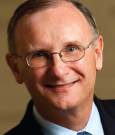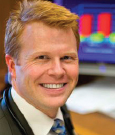Oncology fellows just years away from entering the profession full time may have unrealistic expectations of their future career, according to data published recently in the Journal of Clinical Oncology. The study by Tait D. Shanafelt, MD, of the Mayo Clinic, Rochester, Minnesota, and colleagues found that U.S. oncology fellows’ future expectations of their work hours were 5 to 6 hours fewer per week than the actual work hours reported by oncologists.1
“What this study confirms for us is that people in training today, compared with their practicing peers, want to have a better work-life balance with the expectation that they will work fewer hours per week,” said study author Michael P. Kosty, MD, FASCO, of Scripps Clinic, San Diego. “If you go into a situation expecting to work ‘X’ number of hours and spend more time there than expected, there is great potential for higher job dissatisfaction, which could lead to burnout earlier in a career.”
Assessing Burnout, Well-Being
The assessment of fellows was part of an initiative started by ASCO to address the health and well-being of its members. Partnering with ASCO, Dr. Shanafelt and colleagues surveyed 3,000 ASCO members in fall 2012 and spring 2013 about career satisfaction and burnout. Results published earlier this year indicated that although 82.5% of respondents indicated career satisfaction, 44.7% of surveyed members also reported being burned out.2
The researchers were also interested to find out if burnout or career satisfaction was caused by unrealistic expectations when entering the specialty. The recent study published in JCO surveyed 1,345 oncology fellows taking the 2013 Medical Oncology In-Training Examination on their career plans and professional expectations; it also measured burnout, quality of life, fatigue, and satisfaction with work-life balance.
“It occurred to us that it would be good to assess fellows, and, ideally, do repeated assessments to track how burnout or concerns about work-life balance changed as individuals moved through their careers,” Dr. Kosty said.
By piggybacking the survey on the fellows’ examinations, the researchers were able to get a 97.9% response rate. Dr. Kosty pointed out that the survey gathered data from a very well-balanced group of fellows: 47.2% were women, 49.5% had children, and 73.6% were married. Respondents were also well distributed across their first, second, and third years of
training.
Fellows’ Expectations
Survey results showed that fellows had a similar rate of burnout as did their practicing oncologist counterparts (34.1% vs. 33.7%), and that the rate of burnout decreased with each year of fellowship training.
In contrast, fellows were found to have significantly higher fatigue and lower overall quality-of-life scores compared with practicing oncologists, but they were also more satisfied with their work-life balance and choice of medical specialty.
Interestingly, survey results indicated that fellows may not have realistic expectations of their future work hours. Fellows who planned to enter a career in private practice expected to work 56.9 hours per week, whereas practicing oncologists report actually working 62.9 hours per week (P = .25). Fellows who planned to enter academic practice expected to work 53.5 hours per week, whereas practicing oncologists reported working 58.6 hours per week (P = .004).
According to Dr. Kosty, these results could reflect a trend that could ultimately have a negative effect on the future of the oncology workforce.
“If people graduating from training now want to work 5 to 6 hours less per week, as the study would indicate, that would mean less productivity for oncologists and the cumulative effect could be significant,” Dr. Kosty said. “Already facing a shortage of about 4,000 oncologists by 2020, the trend moving forward could be exacerbated.”
Taking Action
Now that the potential for a problem has been identified, the next important step is developing strategies to correct it.
The topic of how to take the results of this fellows’ survey and use them to change training programs has been added to the agenda at 2014 ASCO Program Directors Retreat taking place in October.
Dr. Kosty acknowledged though that the way forward is still a bit unclear. Some studies have suggested that peer support groups may be an effective strategy to reduce stress and burnout that occur during fellowship, but strategies are also needed to normalize or reset fellows’ expectations when it comes to expected work hours.
“In days past, the clinical experience for fellows was largely patient tertiary or academic-center based, but the truth of the matter is that most individuals will end up in a clinical practice situation where care is delivered largely in an outpatient setting,” Dr. Kosty said. “Training programs are beginning to migrate their fellows experience to this outpatient setting and, hopefully, that will begin to help normalize expectations.” ■
References
1. Shanafelt TD, Raymond M, Horn L, et al: Oncology fellows’ career plans, expectations, and well-being: Do fellows know what they are getting into? J Clin Oncol. July 21, 2014 (early release
online).
2. Shanafelt TD, Gradishar WJ, Kosty M, et al: Burnout and career satisfaction among US oncologists. J Clin Oncol. January 27, 2014 (early release online).
© 2014. American Society of Clinical Oncology. All rights reserved.



